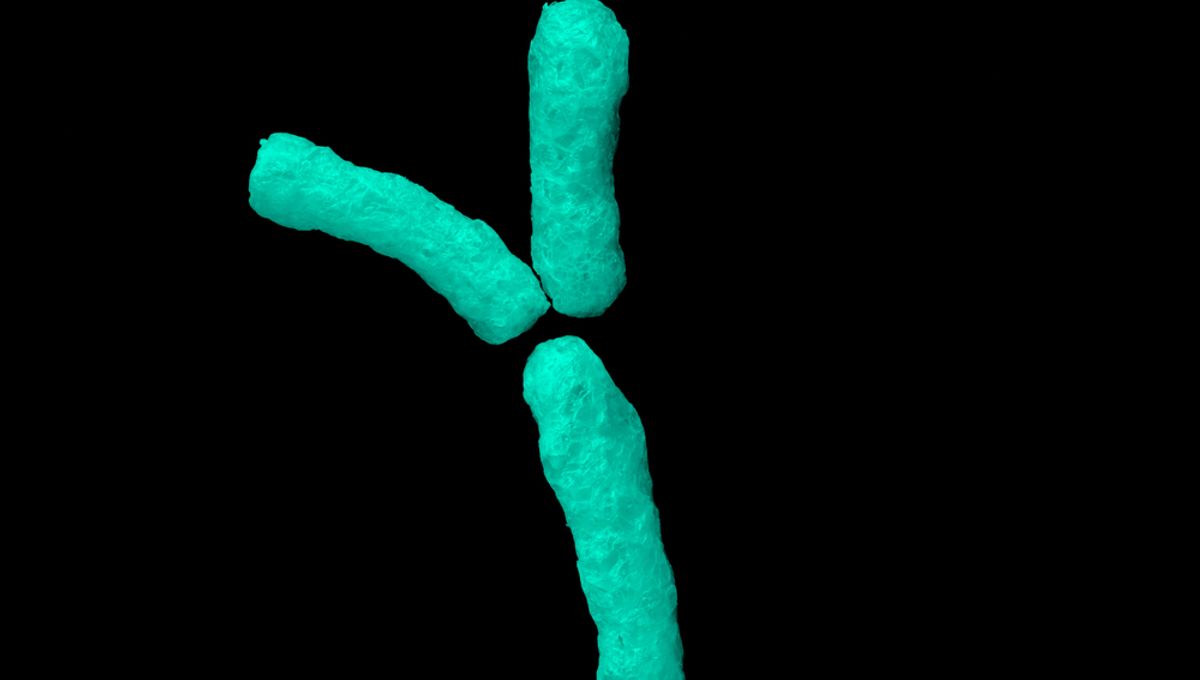
The gradual loss of the Y chromosome as men age may give cancer the opportunity to grow, according to new research. The findings identify a new, but still unknown, role of the male sex chromosome in helping the immune system fend off cancer, and show that its loss spelled disaster for some cells.
During development, our biological sex is determined by the presence of a male-determining gene found on the Y chromosome. If present, the embryo develops male genitals and presents as male, while the absence of this gene (called SRY) leaves the embryo to develop as a female.
Some men might not be happy to hear it, but the Y chromosome is disappearing. Over millions of years, the Y chromosome has slowly degenerated and in just a few million more it will likely be gone for good, potentially leading to our extinction if we don’t evolve a solution.
This also happens as males age – their cells become less likely to have a Y chromosome present and this results in a number of problems. The Y chromosome doesn’t just make a male and then retire: it has been found to contain the genetic instructions for an increasing number of important proteins. Loss of this genetic material has been implicated in 10-40 percent of bladder cancers, as well as Alzheimer’s and heart disease in biological males.
But how does it do this? For the first time, scientists from Cedars-Sinai Cancer, Los Angeles, believe they have found a link between the immune system and the Y chromosome.
Firstly, the team had to quantify to what degree the Y chromosome was lost in their male mouse models, so they developed a scoring system based on the expression of Y-linked genes in bladder cancers in the models.
From here, they moved to samples from humans who had enrolled in clinical trials, forming two groups: one with muscle-invasive bladder cancer that was treated with immune checkpoint inhibitors (a relatively new drug aiming to “unlock” the immune system’s cancer-killing ability); and another that was not treated with these drugs. They used their scoring system to evaluate Y chromosome loss in the men, and found that those in the untreated group who had more loss had poorer prognoses compared to those who had higher scores. In the treated group, the drug saw more success in patients with more Y chromosomes.
The team believed they had found some sort of link between the Y chromosome and immune responses to cancer, so they investigated further in cell cultures. They grew cancer cells, with and without Y chromosomes, to see how fast they developed, and found that both groups grew at the same rate. However, when the team grew the cancers in the presence of immune cells, those without Y chromosomes grew at a much faster rate. It appeared likely that the lack of a Y chromosome was increasing the cancers’ survival and reducing the immune response to the cells.
“The fact that we only see a difference in growth rate when the immune system is in play is the key to the ‘loss-of-Y’ effect in bladder cancer,” said Dan Theodorescu, director of Cedars-Sinai Cancer and co-author of the paper, in a statement.
“These results imply that when cells lose the Y chromosome, they exhaust T-cells. And without T-cells to fight the cancer, the tumor grows aggressively.”
The team hope that the research could eventually lead to better understanding of T-cell exhaustion and the role of the Y chromosome in the growth of cancer cells.
“If we could understand those mechanics, we could prevent T-cell exhaustion,” Theodorescu continued.
“T-cell exhaustion can be partially reversed with checkpoint inhibitors, but if we could stop it from happening in the first place, there is much potential to improve outcomes for patients.”
The research is published in the journal Nature.
Source Link: Y Chromosome Loss Could Drive Cancer Growth In Males